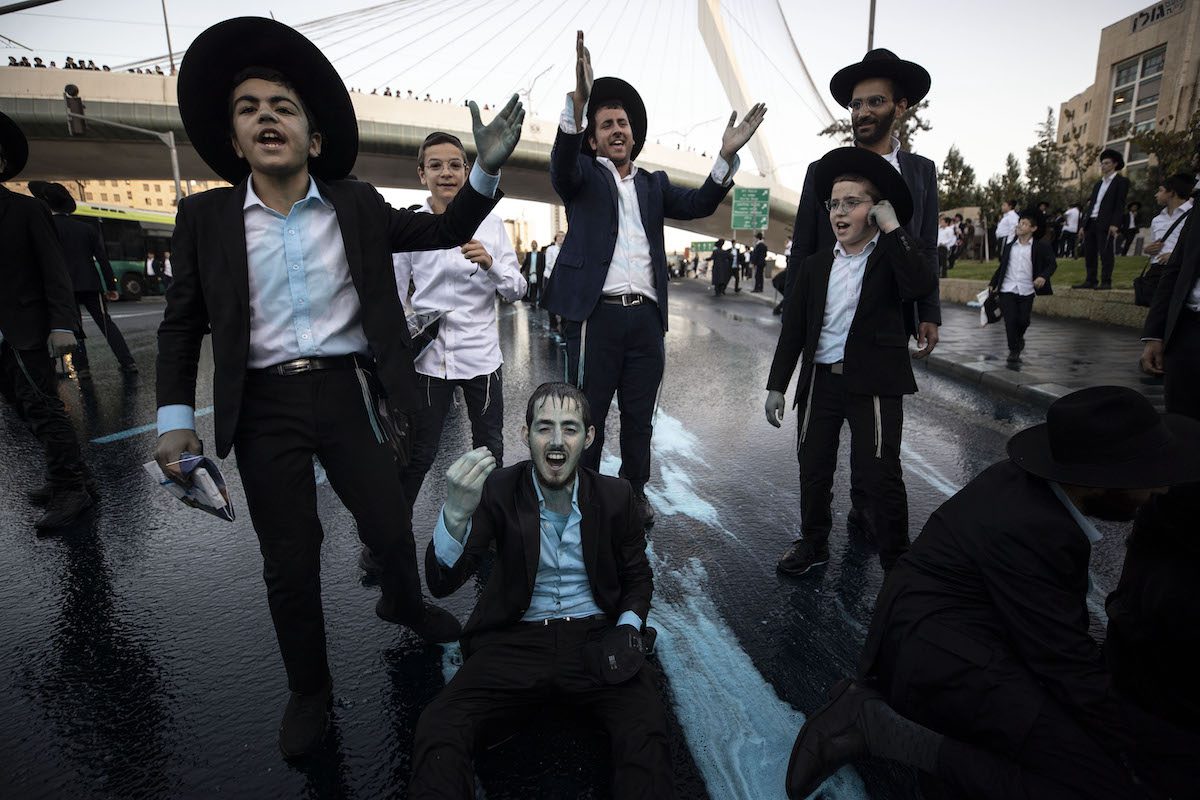Christians could face one year prison sentence for encouraging conversion to their faith, according to a new controversial legislation being introduced in Israel. The legislation which is being proposed by ultra-Orthodox members of Benjamin Netanyahu's coalition would also proscribe Christians from engaging in religious discussion with Jews.
Titled Proposed Penal Law: Amendment – Prohibition of Solicitation for Religious Conversion – 2023, the legislation is introduced by United Torah Judaism's Moshe Gafni and Yaakov Asher. The law would apply to anyone who would attempt to persuade someone to change their religious beliefs, however the legislation specifically mentions the Christian faith, saying that "recently, the attempts of missionary groups, mainly Christians, to solicit conversion of religion have increased."
...


deleted by creator
I would agree with everything you've said. I personally don't have an issue with anyone trying to engage in experiences which could be called spiritual or even mystic, meaning a particular type of uniquely intense and meaningly type of experience, so long as it is not confused with or presentend as supplanting other, in particular materialist-scientific forms of knowledge, and so long as it doesn't lead to reactionary points of view. Ofc, it's not an easy question to what extent spiritual or mystical experiences can be separated from materialism. I'd call Nietzsche and Bataille (ontological) materialists, but also somewhat mystic (Bataille explicitly so).
As you note, organized religion insofar as it has historically existed has been deeply reactionary. This fact is a consequence of the historical, socio-economics contexts, i.e. the forms of society in which they existed, which they shaped and which shaped them, of which they were an intrinsic, organic component. The question then becomes: are there contexts in which the form that religion/spirituality/mysticism tape could be non-reactionary, taken as a complex whole? I've met Christians were deeply impressive people even if I didn't really agree with their politics, and it was clear to me that their spirituality played an important role in that. Unfortunately I've met more Christians who gave me the opposite impression of the function of their religion.
I'm not sure what form spirituality will take in the future, or in potential future socialist societies. On the one hand, if we consider the West, most people are not really deeply religious in any genuine sense as someone in one of the societies of Christendom would have understood it. Tbh most evagelicals and anglicans I've met have such gray, lifeless conceptions of their own spirtuality that I'd even hesitate to apply the word to them. On the other hand, the modern left is far less militantly atheist that it has been in the past, for better of worse. I think this has had both positive and negative consequences, e.g. it's promoted a far greater degree of understanding and sympathy for the religious and helped comabt prejudice and discrimination, but on the other had I think it's somewhat emblematic of a movement away from scientific socialism, which I definitely think has had a broad, negative impact on how the modern left thinks and acts (see the rebirth in popularity for anti-rationalist, anti-empiricist, neovitalist thought among many on the self-described 'left').
It's perhaps worth noting that even at the time, there were Bolsheviks who didn't share Lenin, Trotsky or Stalin's militant atheism (even anti-theism). The examples that first come to mind are Lunacharsky and Bogdanov.